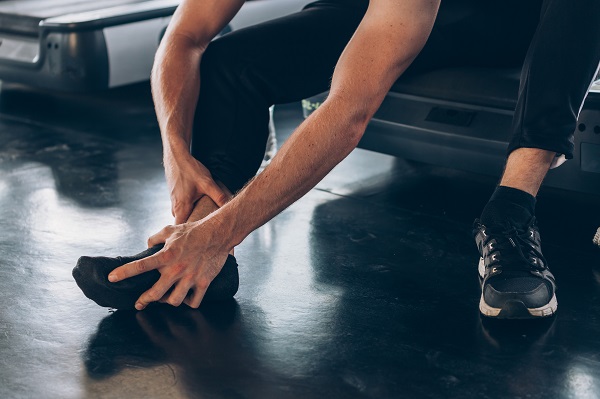Understanding what causes muscle cramps is important to prevent them from happening again. The most common cause of muscle cramps is dehydration, which can be prevented by drinking lots of water and exercising regularly. Sometimes people will experience a sudden onset of pain, which may be due to consuming drugs such as ibuprofen or caffeine. Muscle cramping can also occur when one has not been stretching before or after exercise, so make sure you take time for this activity!
Contents
What Is A Muscle Cramp?
A muscle cramp is a contraction of one or more muscles uncontrollably. They can be with a tolerable amount of pain at any time and last anywhere from a couple of seconds to 15 minutes. Muscle cramps are associated with muscle strain and can interfere with your daily activities.
People affected by muscle spasms are athletes, elderly citizens, pregnant women, infants, and anyone overweight. People who are also active and participate in any physical activity can experience these.
What Are The Causes Of Muscle Cramps?
There are many different causes of muscle cramps. The main one is dehydration, which can be prevented by drinking lots of water and exercising regularly. Certain drugs such as ibuprofen or caffeine can also trigger a sudden onset of pain. Muscle cramping can also occur when someone has not been stretching before or after exercise. So make sure you take time for this important activity!
Other causes of muscle spasms include:
– Lack of electrolytes (such as potassium, magnesium, and calcium) in the blood
– Low blood sugar levels
– Nerve compression or damage
– Infection
– Thyroid problems
– Use of diuretics
-Aging
-Medication
Where Can Muscle Cramps Occur
Most muscle cramps occur in the feet, calves, thighs, and hamstrings. However, they can also happen in other parts of the body, such as the hands, arms, and abdomen. If you are experiencing a muscle spasm for no clear reason, it is best to consult with your doctor to determine the cause.
How Are They Diagnosed?
Muscle cramps are usually diagnosed by their symptoms. If you are experiencing a sudden onset of pain, you are likely having a muscle spasm. Your doctor may perform tests such as blood work or an MRI to determine the cause of the cramp. By diagnosing the root cause, you can begin treatment and prevention methods.
Most people think of muscle cramps as those painful involuntary contractions that we sometimes get after running a race or working out too long. While dehydration is one of the most common causes of these pesky little spasms, there are many other potential culprits, including nerve compression or damage, low blood sugar levels, lack of electrolytes, infection, thyroid problems, and the use of diuretics.
Can Muscle Cramps Be Treated?
Yes, you can definitely treat muscle cramps. The most common treatment is simply taking a break and stretching the cramped muscle. If the cramp persists, you can try massaging the muscle or taking a hot bath. If you are experiencing frequent muscle spasms, your doctor may prescribe medication or recommend lifestyle changes such as increasing your water intake and exercising regularly. Prevention is key when it comes to avoiding these annoying little contractions, so make sure you are aware of all of the possible causes!
You can also avoid caffeine, apply ice or heat, massage the affected area, exercise, drink lots of water, and stretch before any physical activity.
When Is It Time To See A Doctor
If you are experiencing muscle cramps accompanied by a fever, vomiting, or diarrhea, it is best to see a doctor. Additionally, if the cramps persist for more than two weeks or interfere with your daily activities, it is also time to seek medical help. See your doctor sooner if the pain is severe or there is any swelling, redness, or bruising around the cramped area. By diagnosing and treating the cause of muscle spasms, you can enjoy life without these pesky pains!
Conclusion
Muscle cramps can happen due to many different things and occur in any part of the body. They are usually diagnosed by their symptoms and can be treated with stretches, massages, ice or heat, medications, and lifestyle changes. If you are experiencing frequent muscle spasms, it is best to consult with your doctor to determine the cause and find the best treatment for you.








